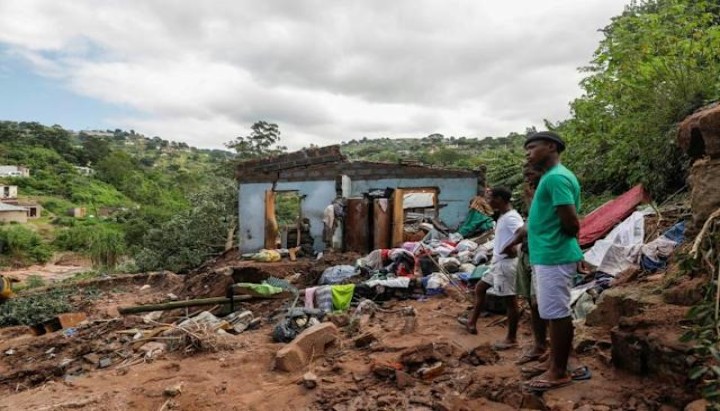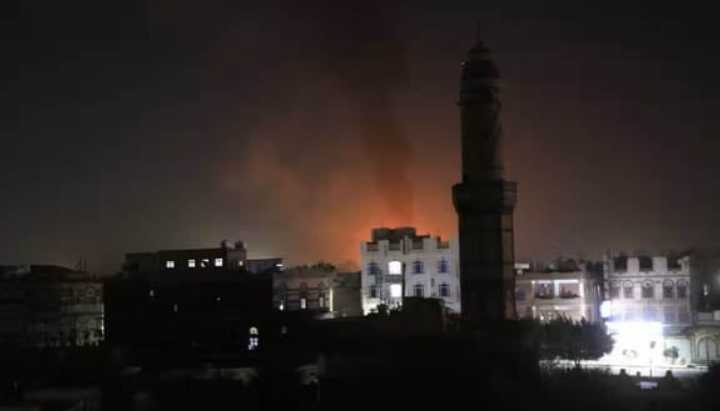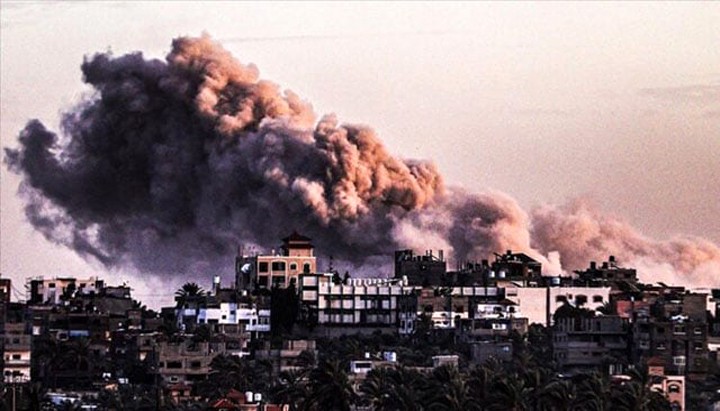South African President Cyril
Ramaphosa on Monday declared a national state of disaster over the deadly floods on the east coast, warning that rebuilding even basic services will
take time.
"This is a humanitarian
disaster that calls for a massive and urgent relief effort," he said in a
televised address. "The lives, health and well-being of thousands of
people are still at risk."
"The Port of Durban -- which
is one of the largest and busiest shipping terminals on the continent and which
is vital to our country's economy – has been severely affected," he said.
At least 443 people have died,
with 48 still missing, around the east coast city of Durban, the president
said.
Some badly damaged areas remain
inaccessible, he added, including 16 schools that are completely cut off.
The state of disaster, similar to
measures imposed to fight the Covid pandemic, unlocks additional resources to
help rebuild.
To ease concerns around
corruption which plagued Covid efforts, Ramaphosa said the government would
create a special oversight body that will include the auditor-general, business
and religious groups, as well as professional associations of engineers and
accountants.
Earlier Monday, the military said
10,000 troops were deployed to help restore power and water and search for the
missing.
But hopes for finding the missing
were fading.
Clyde Naicker said his brother
Ronald had been missing for a week, since he disappeared while trying to get to
his job as a hospital radiographer.
"Apparently from what we
heard, his vehicle got flooded and then he tried to go to safety," Naicker
said. The family has been searching every day, but police only joined their
effort on Monday.
For the hundreds of bodies that
have been found, damaged roads and waterlogged cemeteries made burials
difficult.
"There are so many deceased,
and the mortuaries can't keep up because they have been so inundated,"
said Pieter van der Westhuizen, general manager for funeral services at the Avbob
insurance company.
"So it is taking a little
longer to get the deceased out for burial."
KZN Funeral Directors Association
representative Nasan Chetty said the continuous rain had made it "very
difficult to do burials".
"If we dig the graves and
then come back to do the burial a few hours later it is water-logged," he
told AFP.
- Water problem -
Swathes of eThekwini, the
municipality that includes Durban, remain without electricity or water. Local
government estimated that 80 percent of the city's waterworks were down.
Water tankers were being deployed
across the region, but the authorities were struggling to fill them.
Some of the troops include
plumbers and electricians, joining the mammoth task of trying to get life back
to normal.
Many streets remain slathered
with mud. In areas where repair crews have yetto reach, the homeless cleared
roads to make way for water tankers to pass, an AFP correspondent observed.
Residents complained the water
tankers came unannounced, with little discipline as families raced to fill
receptacles.
"There is also a lot of
pushing there. People are desperate -- they don't care about the next
person," said Philakahle Khumalo, a 30-year-old mother of two.
The deadliest storm on record
dumped apocalyptic levels of rain on Durban and the surrounding area.
Some 40,000 people were left
homeless and more than 600 schools and 66 health care facilities have been
damaged, Ramaphosa said.
Many children are due to return
to class on Tuesday after the Easter break, but authorities warned that 271,000
students may not be able to attend due to damaged schools.
The government has announced an
immediate one billion rand ($68 million) in emergency relief.
Nearly three dozen search teams
were deployed across the region Monday, said coordinator Dave Steyn.
"The rescue operations have
stopped. It's now more of a search and recovery," he told AFP.
- Shock -
The normally azure waters at
Durban's famed beaches have been turned a muddy brown by the mountains of earth
and debris washed to the shore.
The intensity of the floods took
South Africa, the most advanced African economy, by surprise.
The country is still struggling
to recover from the Covid pandemic and deadly riots last year that killed more
than 350 people, mostly in the now flood- struck southeastern region.








